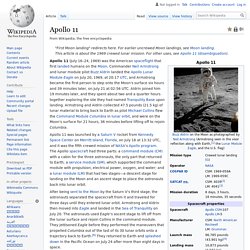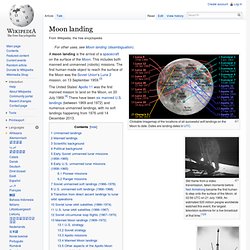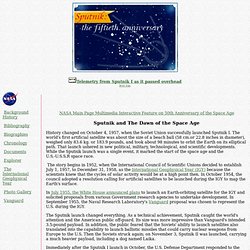

Travel INSIDE a Black Hole. Black hole. A black hole is defined as a region of spacetime from which gravity prevents anything, including light, from escaping.[1] The theory of general relativity predicts that a sufficiently compact mass will deform spacetime to form a black hole.[2] Around a black hole, there is a mathematically defined surface called an event horizon that marks the point of no return.

The hole is called "black" because it absorbs all the light that hits the horizon, reflecting nothing, just like a perfect black body in thermodynamics.[3][4] Quantum field theory in curved spacetime predicts that event horizons emit radiation like a black body with a finite temperature. This temperature is inversely proportional to the mass of the black hole, making it difficult to observe this radiation for black holes of stellar mass or greater. Objects whose gravity fields are too strong for light to escape were first considered in the 18th century by John Michell and Pierre-Simon Laplace. History General relativity. Apollo 11. Broadcast on live TV to a world-wide audience, Armstrong stepped onto the lunar surface and described the event as "one small step for [a] man, one giant leap for mankind.

" Apollo 11 effectively ended the Space Race and fulfilled a national goal proposed in 1961 by the late U.S. President John F. Kennedy in a speech before the U.S. Congress: "before this decade is out, of landing a man on the Moon and returning him safely to the Earth. Framework Crew Each crewman of Apollo 11 had made a spaceflight before this mission, making it only the second all-veteran crew (the other being Apollo 10) in human spaceflight history.[8] Collins was originally slated to be the Command Module Pilot (CMP) on Apollo 8 but was removed when he required surgery on his back and was replaced by Jim Lovell, his backup for that flight.
Backup crew In early 1969, Anders accepted a job with the National Space Council effective August 1969 and announced that he would retire as an astronaut on that date. Support crew. Moon landing. Clickable imagemap of the locations of all successful soft landings on the Moon to date.

Dates are landing dates in UTC. Still frame from a video transmission, taken moments before Neil Armstrong became the first human to step onto the surface of the Moon, at 02:56 UTC on 21 July 1969. An estimated 500 million people worldwide watched this event, the largest television audience for a live broadcast at that time.[1][2] Luna 2, the first object made on Earth to reach the surface of the Moon. NASA. Sputnik. NASA Main Page Multimedia Interactive Feature on 50th Anniversary of the Space Age Sputnik and The Dawn of the Space Age History changed on October 4, 1957, when the Soviet Union successfully launched Sputnik I.

The world's first artificial satellite was about the size of a beach ball (58 cm.or 22.8 inches in diameter), weighed only 83.6 kg. or 183.9 pounds, and took about 98 minutes to orbit the Earth on its elliptical path. That launch ushered in new political, military, technological, and scientific developments. While the Sputnik launch was a single event, it marked the start of the space age and the U.S. The story begins in 1952, when the International Council of Scientific Unions decided to establish July 1, 1957, to December 31, 1958, as the International Geophysical Year (IGY) because the scientists knew that the cycles of solar activity would be at a high point then.
The Sputnik launch changed everything. Immediately after the Sputnik I launch in October, the U.S. Tumblr m6vzp8nKQk1rx06nvo1 r2 500. Outer space stars. DNews. Vsauce. Guns in Space. What If The Sun Disappeared? SPACE STRAW. How Fire Burns in Space. What if You Were Born in Space? What's The Brightest Thing In the Universe? Could Aliens Be Living On Exomoons? Can A Moon Be Older Than Its Planet? Did Aliens Create Saturn's Hexagon? How Big Is Our Solar System? Where Are Mysterious Radio Waves In Space Coming From?
Were Scientists Wrong About The Big Bang?